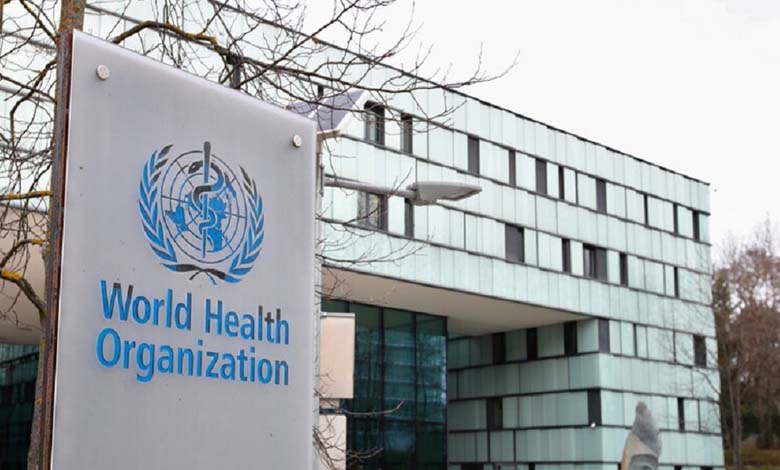Alarming Rise in Cholera Deaths: WHO Sounds the Alarm

In recent months, several countries around the world have witnessed a worrying surge in cholera cases and related fatalities. The World Health Organization (WHO) has issued repeated warnings, describing the situation as a “major health crisis” and calling for immediate international mobilization to contain the outbreak and reduce mortality.
-
UK Reports Unexplained Case of Mutated Mpox Virus, Raising Public Health Concerns
-
Head Injuries May Reactivate Viruses and Increase the Risk of Neurological Diseases
A concerning resurgence
Cholera, an acute diarrheal disease caused by Vibrio cholerae, continues to be a marker of global health inequities. The most severe outbreaks are concentrated in sub-Saharan Africa, notably Yemen, Nigeria, the Democratic Republic of Congo, and South Sudan, as well as in South Asia and parts of Latin America. These areas often suffer from fragile health infrastructures, ongoing conflicts, and recurrent natural disasters.
According to the latest WHO epidemiological report from August 2025, over 1.2 million suspected cases have been reported since the beginning of the year, with more than 15,000 confirmed deaths—an increase of 35% compared to the previous year. In countries such as Yemen, the case-fatality rate has reached 2.5%, well above the critical 1% threshold that signals a public health emergency.
-
Head Injuries May Reactivate Viruses and Increase the Risk of Neurological Diseases
-
Surprise… Virus Affecting ‘Most People’ Causes Serious Disease
Aggravating factors
Several elements contribute to this alarming escalation:
- Limited access to safe water and sanitation: contaminated water is the primary transmission route, and the lack of proper latrines and sewage systems exacerbates the risk.
- Conflict and mass displacement: wars and humanitarian crises disrupt health services, destroy infrastructure, and concentrate populations in overcrowded camps.
- Climate change: floods, droughts, and cyclones create conditions conducive to bacterial proliferation. Recent floods in South Sudan and Bangladesh have accelerated water contamination and cholera spread.
- Vaccination delays and uneven coverage: despite effective oral vaccines, distribution remains insufficient, leaving large populations vulnerable.
-
Anxiety and sleep disturbances: New symptoms for Coronavirus Variant “JN.1”
-
New Hope for AIDS Patients: Effectiveness of Antibodies Fighting the Virus
Field testimonies
In refugee camps in northern Nigeria, local health workers described alarming conditions. Aminat Yusuf, a nurse at a treatment center, said: “Every day we see dozens of patients, mostly children. Many arrive already dehydrated, and some do not survive despite our efforts. The situation is critical.”
In Yemen, Dr. Ali Al-Hadrami highlighted the war’s impact: “Our hospitals are overwhelmed. Water and food shortages worsen the situation. Without massive international intervention, we face a humanitarian catastrophe.”
-
Paralysis in vocal cords… New presentation of Coronavirus
-
A “unprecedented” virus infects a young man in Peru
Health responses and prevention strategies
The WHO, in coordination with Médecins Sans Frontières (MSF), the World Food Programme (WFP), and local governments, advocates a multidimensional approach:
- Enhanced epidemiological surveillance: rapidly identify hotspots and monitor outbreak evolution.
- Provision of safe water and improved sanitation: distribute hygiene kits, portable filters, and build temporary and sustainable sanitation facilities.
- Mass vaccination campaigns: deploy oral cholera vaccines in the most affected areas, especially among children and displaced populations.
- Community awareness campaigns: educate communities on hygiene, handwashing, and safe water use.
-
“Vampire” virus leaves scientists
-
India Records Two Cases of the Serious “Nipah” Virus
Humanitarian and economic stakes
Beyond health impacts, the cholera resurgence has significant socio-economic consequences. Temporary school and market closures, reduced productivity, and disrupted supply chains exacerbate poverty. Local healthcare systems, already fragile, are overwhelmed, jeopardizing essential care for other diseases.
Outlook and call to action
The WHO emphasizes the need for strengthened international coordination. Investments in health infrastructure, access to clean water, and vaccination campaigns are critical to prevent future outbreaks. Humanitarian organizations urge urgent mobilization of funding and personnel, warning that each day of delay could result in additional lives lost.
In conclusion, the alarming rise in cholera deaths underscores that this disease remains a major global public health challenge. A rapid, coordinated, and sustainable response is essential to protect millions of lives and prevent a large-scale humanitarian disaster.












